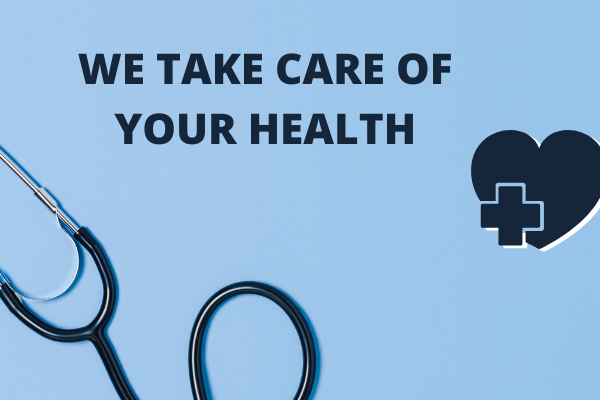- If you have any questions, please contact us!
- +84 965 624 065
- info@greennrj.com.vn

Complete Guide to Cosmetic Product Registration in Vietnam
March 6, 2025
Business Taxes in Vietnam: Essential Guide
March 8, 2025Vietnam’s food market is rapidly evolving: consumers demand more nutritious everyday foods, and enriched or fortified items—supplemented foods—are increasingly sought after. Importing supplemented food in Vietnam presents significant opportunities, but it also carries the risk of non-compliance. Misclassification, incorrect declarations, unclear labelling, or failure to meet legal standards can lead to product rejection, fines, or worse. This article gives you up-to-date, accurate guidance on how to import, declare, label, and distribute supplemented foods in Vietnam under current law and draft regulations, so your business can enter the market safely.
What Are “Supplemented Foods” vs Other Categories
Supplemented foods under Vietnamese regulation are ordinary foods that have been fortified or enriched with additional micronutrients (vitamins, minerals) or biologically active substances (such as enzymes, probiotics, prebiotics, fatty acids, amino acids) to increase nutritional value. They remain everyday foods, not intended to diagnose, treat or prevent diseases.
What supplemented foods are not: They are not the same as “health protection foods”, which are what English often calls “health supplements” or “dietary supplements.” These latter have stricter rules for registration, claims, dosage, and form (often pills, capsules etc.) under functional food regulation.
Key Legal Basis and Current Requirements
Here are the main laws/regulations you must comply with now:
| Legal Instrument | What It Covers / Applies To | Key Requirements for Supplemented Foods |
|---|---|---|
| Law on Food Safety No. 55/2010/QH12 | Overarching law for food safety in Vietnam | All food products (including supplemented foods) must meet safety, hygiene, labelling standards. |
| Decree 15/2018/ND-CP (Implementation of Law on Food Safety) | Regulates product declaration/self-declaration vs registration, import inspection, labelling, responsibilities. Supplemented foods currently fall under self-declaration if they don’t belong to stricter categories. | |
| Decree 9/2016/ND-CP (Micronutrient Fortification) | Mandates fortification of certain staple foods (iodized salt, wheat flour, vegetable oils with vitamin A etc.) with specific micronutrients. That is, some “supplemented food” content is required for certain product types. | |
| Circular 44/2015/TT-BYT | Specifies list of micronutrients allowed to be added to foods, rules on how to manage such fortification/supplementation. |
Practical Steps to Comply — What You Need to Do
To successfully import and distribute supplemented food in Vietnam, follow these three key steps:
Step 1. Establish a Company in Vietnam or Appoint a Local Partner
Foreign businesses cannot directly declare or import food products into Vietnam. You must either:
-
Incorporate a legal entity in Vietnam (commonly a trading company with import and food business lines), or
-
Work with a licensed local partner/distributor who already has the right to import and self-declare or register supplemented foods.
This entity will act as your official importer and product declaration holder, responsible before the Ministry of Health and customs authorities for compliance with food safety regulations. Choosing the right partner is crucial: an experienced distributor can speed up the declaration process, ensure proper labelling, and manage import inspections smoothly.
Step 2. Classify the Product Correctly
Once a legal entity or partner is in place, the next step is to determine the correct classification of your product under Vietnam’s food safety regulations. This classification affects which authority will review your dossier, the type of declaration required, and the testing standards you must follow. If a product is mistakenly declared as supplemented food while it should fall into another category—such as health supplements or pharmaceuticals—the authorities may reject the application, impose penalties, or require a complete re-submission. For this reason, it is strongly advised to review the relevant decrees and technical circulars carefully, or seek guidance from experienced regulatory consultants, before moving forward.
Step 3. Ensure Compliance with Nutrient Standards
Once the classification is clear, companies must review whether the added nutrients comply with existing regulations. Circular 44/2015/TT-BYT provides a list of permitted vitamins and minerals as well as their safe limits. For certain categories—such as fortified wheat flour or salt—mandatory requirements under Decree 9/2016/ND-CP may also apply. At this stage, technical compliance becomes critical to avoid future penalties or product recalls.
Step 4. Conduct Laboratory Testing
Every supplemented food intended for import must be tested to prove safety and quality. Tests must be carried out by ISO 17025 accredited laboratories or labs recognized by the Ministry of Health. The reports typically cover both safety indicators, including heavy metals and microbial contamination, and quality indicators related to the nutrients added. These reports are valid for twelve months and must be updated before submission.
Step 5. Prepare and Submit the Self-Declaration Dossier
With test results ready, the importer must prepare a dossier in line with Decree 15/2018/ND-CP. This dossier generally includes the self-declaration form, valid test reports, a copy of the business license, and the proposed product label in Vietnamese. Any foreign-language documents must be translated and notarized. The dossier is submitted to the provincial Food Safety Management Authority, which reviews and accepts it if complete. From that point, the product is legally recognized for circulation.
Step 6. Complete Customs Clearance
Following acceptance of the self-declaration, the product can enter the customs process. Importers must present the accepted declaration alongside shipping documents such as invoices, packing lists, certificates of origin, and bills of lading. Clearance usually takes two working days, although shipments selected for physical inspection under the “Red Line” process may experience longer delays.
Step 7. Plan Distribution and Marketing
Once cleared, businesses can move on to distributing their supplemented foods. Wholesale distribution to retailers, pharmacies, or supermarkets is common, while companies aiming for direct consumer sales must secure a Retail License from the Department of Industry and Trade. Many foreign brands also rely on e-commerce platforms like Shopee or Lazada, combined with social media campaigns on Facebook or TikTok. However, it is important to remember that all advertisements are closely monitored by the Ministry of Health, and any exaggerated or misleading claims may result in fines or suspension of advertising approval.
Step 8. Post-Market Supervision
Once the self-declaration dossier has been duly received by the competent authority, the supplemented food product is legally permitted to be circulated on the market. However, under the “declare first – inspect later” mechanism stipulated in the Law on Food Safety (Law No. 55/2010/QH12) and Decree No. 15/2018/ND-CP, regulatory bodies such as the Ministry of Health, the Vietnam Food Administration, or provincial Food Safety Management Authorities are empowered to conduct post-market inspections at any stage of distribution.
Post-market supervision may involve sampling and testing, verification of labeling and packaging, and cross-checking the actual product against the registered self-declaration dossier. If violations are detected—such as undeclared ingredients, non-compliance with declared specifications, or mislabeling—the authorities may impose administrative sanctions, require correction of labeling, order product recall, or, in serious cases, suspend circulation of the product. For this reason, importers and distributors are advised to maintain a robust internal quality control system, keep complete technical documentation on file, and regularly ensure that all products in circulation remain consistent with their declared standards.
Conclusion
Successfully importing supplemented foods into Vietnam depends on accurate product classification, compliance with fortification regulations, and full adherence to Decree 15/2018 as well as upcoming amendments. Equally critical are laboratory testing, proper labeling, and lawful use of claims, since errors in these areas can lead to customs delays, administrative penalties, or even product recalls.
To minimize risks and ensure smooth market entry, businesses should prepare a solid regulatory strategy and stay updated with evolving requirements. Green NRJ supports foreign and local companies in dossier preparation, label compliance, and navigating post-market supervision. With our expertise, you can accelerate approval timelines, avoid costly mistakes, and establish consumer trust.
Contact Green NRJ today to secure full compliance and bring your supplemented foods to the Vietnamese market quickly and legally.




